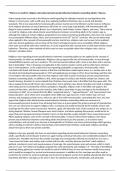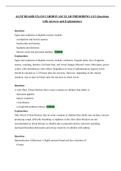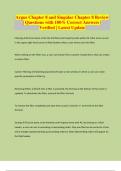Essay
'There is no need for religious rules about private sexual behaviour between consenting adults' Discuss.
- Institution
- OCR
This 32/40 (A grade) essay on Religious Studies - Ethics - Sexual Ethics provides a great revision and learning resource for Religious Studies Students, covering key content and wider knowledge. Key themes in this essay are: - The Catholic Church - Homosexuality - Pre-marital sex - Divorce ...
[Show more]












